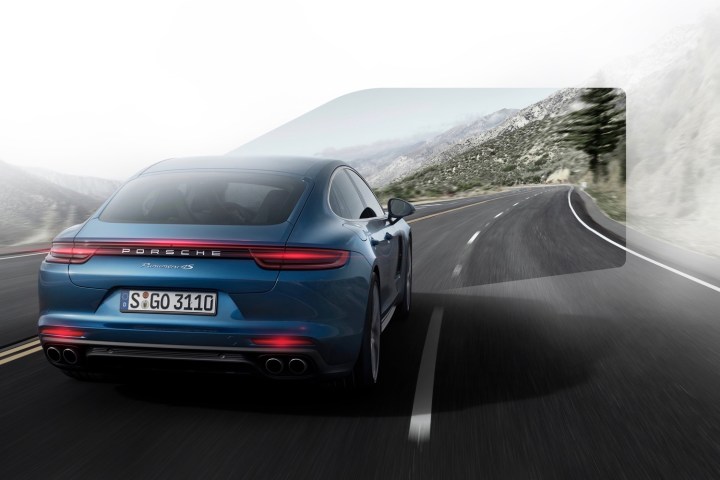
Whether it’s advanced driver-assist systems or self-driving cars, sensor technology is becoming a priority for automakers. Developers are constantly looking for sensor tech that can help human drivers, or allow autonomous cars to better “see” their environment. That’s why Porsche is investing in TriEye. The Israeli startup has developed sensor tech it claims works in low-visibility conditions, such as fog, rain, and dust.
Plenty of startups claim to have developed next-generation sensors, but TriEye stands apart by relying on shortwave infrared (SWIR). That means its sensors read light outside the visual spectrum, and are thus unaffected by conditions that might limit human vision or conventional cameras. TriEye has developed a “unique semiconductor design and patent-pending technology” that will allow it to manufacture SWIR cameras at a fraction of their current cost, a Porsche press release said.
“We see great potential in this sensor technology that paves the way for the next generation of driver assistance systems and autonomous driving functions,” Michael Steiner, Porsche board member for research and development, said in a statement. “SWIR can be a key element: it offers enhanced safety at a competitive price.”
Porsche is only investing in TriEye for now. The automaker hasn’t discussed any concrete plans to use the startup’s sensors in its future production cars. Porsche’s funding will help TriEye continue to develop its sensors with the goal of commercialization but, as with all promising new tech, there is no guarantee that it will become a commercially viable product.
Porsche is a serial investor in tech startups. It previously joined Hyundai in a funding round for Swiss startup WayRay, which is developing augmented reality tech for head-up displays. Porsche has also invested in another Israeli startup, Anagog, a developer of artificial intelligence (A.I.) software, and purchased a 10-percent stake in Rimac, a Croatian firm that has built a 1,088-horsepower electric supercar called the Concept One and is developing a new model with 2,000 hp.
The Rimac investment is especially relevant to Porsche, which is getting ready to launch its first production electric car. Called the Taycan (pronounced “tie-con”), that car will be revealed at the 2019 Frankfurt Motor Show in September following a rigorous testing program. Porsche is expected to follow up the Taycan with other electric models.
Editors' Recommendations
- iPhone 12 rumored to replace optical image stabilization with sensor-shift tech
- Porsche will use discarded F1 tech for a new hybrid supercar, report claims
- Porsche’s Augmented Reality app lets you see your dream car in the real world


